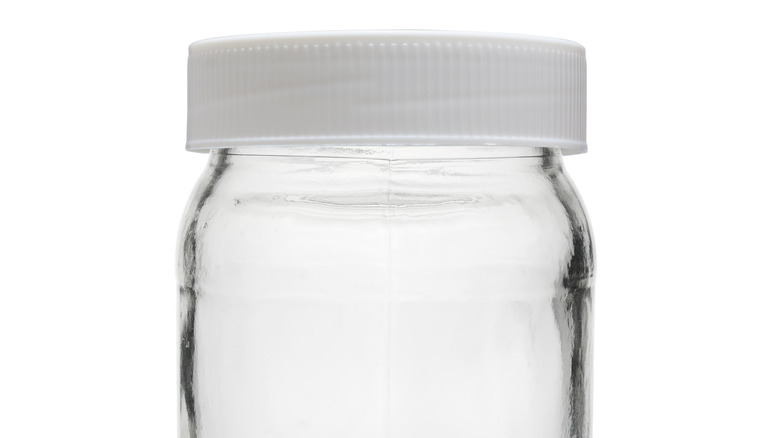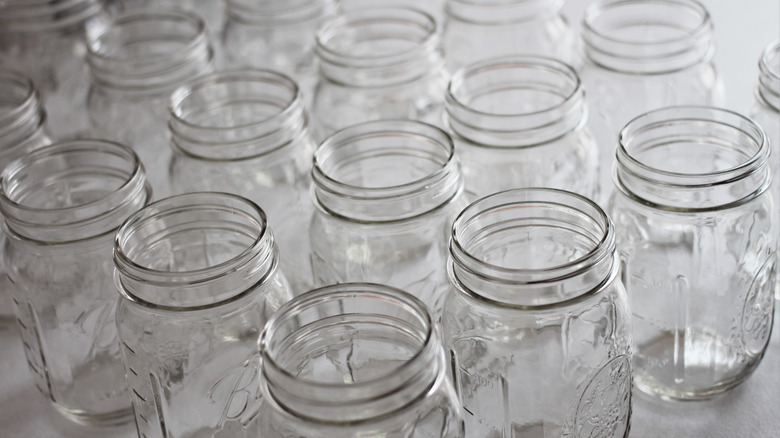Is It Ever Okay To Use Plastic Caps When Canning At Home?
The accessibility of home canning jars and lids may be something we take for granted, but according to Mason Jars, the history of the jars, as well as the methods used to preserve the products inside them, is lengthy. The most common canning jars you'll see around were actually invented in 1858 and take their name from their inventor, John Landis Mason. Although created years earlier, the jars wouldn't become widely available to consumers until 1884, when Ball Corporation began manufacturing Mason's licensed design as home canning jars, as noted by Smithsonian Magazine.
Once the jar was perfected, it was time to fine-tune the methods of keeping it sealed. Some iterations of canning lids included flat tin lids, a zinc lid with a rubber ring, and even using wax as a seal, as reported by Pick Your Own. Another invention for this lid has made its way onto retail shelves and into the circles of canning enthusiasts. You may have noticed that plastic caps are available for Mason jars, but if you're new to canning, you may wonder how to use them.
Plastic caps can be used for dry storage
The plastic caps, as convenient as they may seem, aren't safe for use when canning your own food at home. These lids are meant to be used for storage only and can have downsides, such as leaking or producing mold, since they are less air-tight, as noted in Healthy Canning. That recommendation is echoed by the National Center for Home Food Preservation, which advocates using the two-piece contraption consisting of a metal lid with a sealing component and a metal band that screws on the jar to keep the top secure during the canning process.
Although you can't use a plastic cap for canning, they're perfect for use in the refrigerator or freezer, as pointed out by Healthy Canning. For instance, you could put one on an opened jar of jam or pickles to keep in the fridge instead of using a metal lid made for canning or transferring the jar's contents to a different container. Aside from wet ingredients that need to be put in a cool environment, the plastic caps are also great for dry storage, like keeping beans, rice, or oats fresh for longer.

